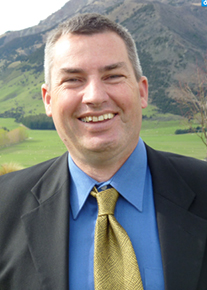 Assoc Prof Ben Wooliscroft is keen to change the conversation about what constitutes a successful business.
Assoc Prof Ben Wooliscroft is keen to change the conversation about what constitutes a successful business.
The University of Otago macro marketing researcher studies consumerism, and in particular how to make consumer systems more sustainable and more important.
Assoc Prof Wooliscroft believes marketing has a part in bettering society, as well as its more traditional role of connecting consumers with producers. Markets, marketing and society are connected into a networked system that can shape global human welfare as well as economic outcomes.
The world is changing, and increasingly consumers and businesses value social and environmental sustainability alongside profit. Future businesses will not be judged solely on the money they make and how big they can grow, but on the quality of employment they provide, and the impact they have on the planet.
Consumer decisions that influence every aspect of life and business are therefore intrinsically linked with societal wellbeing and quality of life.
Part of Assoc Prof Wooliscroft's research is looking at what it takes to move consumers to behaviour that is more ethical.
About the research
To encourage ethical consumption, Assoc Prof Wooliscroft says you have to understand the motivation and situation that drives consumer decisions. Studies are already showing changing ethical and sustainable consumption but it is important to understand what drives decisions. For instance consumers, who agree with sustainable practices, may actually only change their purchasing habits when they think they can afford to.
In one study, Assoc Prof Wooliscroft established a hierarchy of ethical consumption in New Zealand, which showed consumers are likely to make incremental rather than large purchasing changes. Some consumers are at the bottom of the hierarchy of ethical behaviour – using reusable shopping bags – but will step up and progress up the hierarchy of ethical choices when opportunity exists to change.
The study demonstrated there is an appetite for change in New Zealand, and provides opportunities for businesses genuinely wanting to meet the needs of their clients to research and demonstrate they have ethically sourced products.
Assoc Prof Wooliscroft's work raises questions about what consumers really need to purchase to make their life better. His studies show it is not objects people believe enhance quality of life, but rather life experiences, health, and friends and family. This is despite the fact that trivial consumption is on the rise – people are buying poor quality goods in record numbers that don't last or they do not necessarily need to own to enhance their lives.
These insights are valuable for businesses and policy makers to understand, in order to make the future world a better place to live in.







